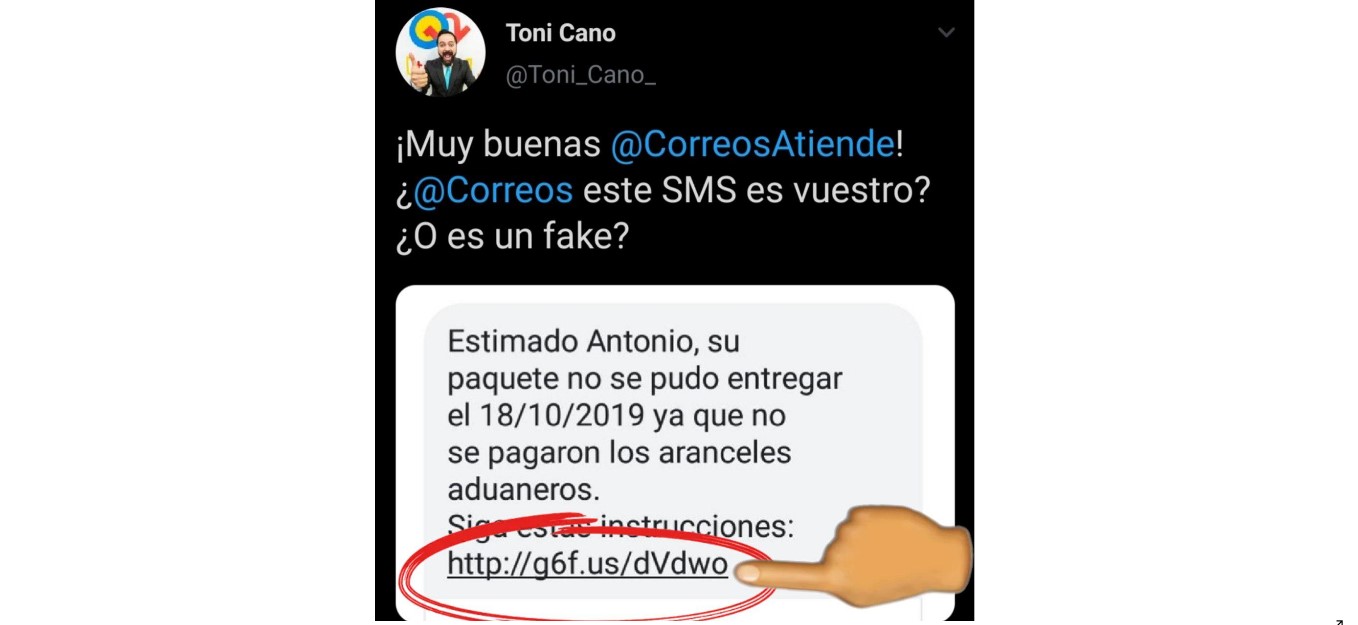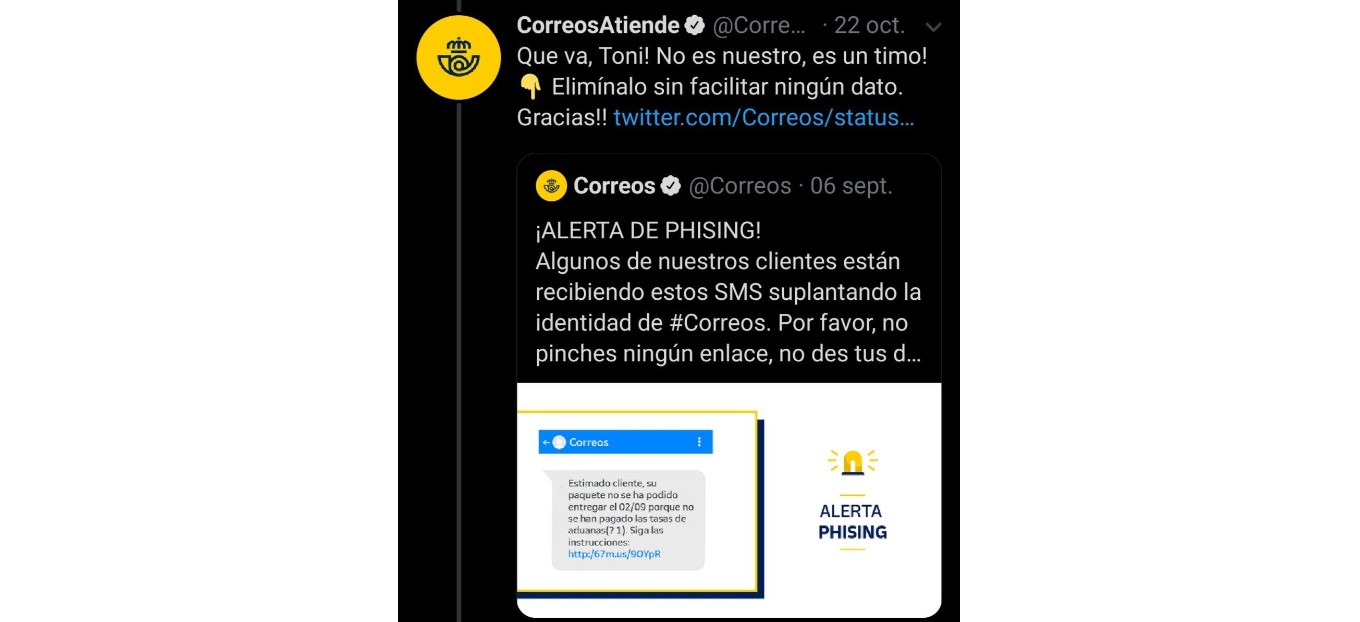We return with a ANDROID ALERT, or what is the same, a topical security news in general as it relates to the world of technology in the broad spectrum that encompasses. This time we will talk about a hot topic that seems to be becoming fashionable in Spain, we are talking about what is technically known as Phishing.
A scam that is spreading across the country like wildfire at a dizzying rate and that is already affecting hundreds of users in different ways. What do you want to know exactly what Phishing is and how to protect yourself from this scam or classic stamp scam?. Well then, keep reading this post because apart from explaining everything to you, I am sure that it will be very useful so that you do not fall into the trap into which hundreds of users are falling.
But what exactly is Phishing?

Speaking with a plain language that everyone can understand since in principle this video-post is what we want to achieve, to keep the users of Smartphones, Tablets and technology in general alert, whatever the operating system it is, Phishing is nothing more than a scam in which cybercriminals supplant the identity of an entity such as a bank, savings bank, Amazon, Google, or as in this specific case that I tell you in this post, an impersonation of identity of Correos Spain.
How do these scammers act with the Phishing scam?

The performance of these scammers, or rather organized cybercriminal mafias, they act normally via SMS messages like the one I have left you in the image above, image shared by Toni Cano from Q12 on his Twitter account.
These messages are of different styles though As a general rule, they all comply with a common rule, which is to try to make you click on the link that is attached to the message, a link in which you are supposedly going to contact the entity in question through which they are posing to divert you to a fake website, identical to the official website from which you will be asked for personal data that your bank or any entity will never request via SMS or email or any of these electronic means.
It goes without saying that you should never click for anything in the world on that link, so if you receive an SMS message, email message, WhatsApp or Telegram message that is minimally similar to the one I have shown you in this post, especially if a URL shortener has been used, what you should do is pass from it and remove it directly to the garbage can on your terminal. Let's go straight to the trash can !!
At the moment that I am writing the post, there are so many affected that the news is spreading through all social networks such as WhatsApp, Twitter, Facebook, etc., etc. Remember that although here I have shown you an example in which an attempt is made to impersonate Correos España, They have already reported and denounced similar messages trying to supplant banking entities such as Bankia, BBVA, Banco de Sabadell, and many others.
In the video that I have left you right at the beginning of this post I explain this scam or Phising type scam in a much simpler and more enjoyable way to understand, so I advise you to take a look to be even more informed and be alert so that they do not give it to you with cheese as the old and wise popular proverb says.
Buenas tardes. I am writing to tell you that you have a rather big error, because the word is "phishing", not "phishing" and it is incorrectly written on various sites in the article and images. Sincerely.
Thank you very much friend it is already corrected. As soon as the image can hit.
Regards!!!
You're welcome, man and keep it up, the page has improved a lot with the new structure and continues to evolve.